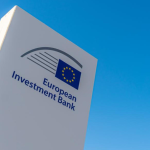Executive Summary
Artificial Intelligence (AI) is transforming real estate valuation by automating data analysis, improving speed and enhancing accuracy. In Kenya, where property markets are diverse and often inconsistent, AI tools such as Automated Valuation Models (AVMs) and predictive analytics offer efficiency and transparency but face data and regulatory limitations.
This report summarizes how AI, Building Information Modelling (BIM) and smart property technologies are reshaping valuation practices. It emphasizes that Kenya’s real estate sector must adopt a hybrid model—merging AI precision with human expertise—to achieve credible, ethical and transparent property valuations.
Introduction
Property valuation underpins real estate investment, financing and taxation. Traditionally, valuers relied on manual comparison of past sales, physical inspection and experience-based judgment. AI now enhances this process through data-driven automation. AVMs analyze extensive datasets—location, sales records, property features and market trends—to generate near-instant value estimates.
In Kenya, full automation remains limited due to inconsistent property records, zoning irregularities and fragmented data. Platforms such as Ardhisasa have improved transparency, but broader adoption of digital tools and open data sharing is still needed. Globally, countries like New Zealand demonstrate the importance of transparency frameworks for AI valuation, highlighting lessons Kenya can adopt.
Data and Analysis
AI handles complex, non-linear relationships that traditional regression methods cannot. It integrates geospatial data, satellite imagery and demographic information to identify hidden patterns affecting value. Global PropTech leaders like Zillow and HouseCanary have shown improved accuracy using AI, while in Kenya, professionals advocate standardizing valuation parameters such as road access, view quality and amenities.
The integration of BIM (Building Information Modelling) further enhances AI valuation accuracy. BIM offers detailed digital data on building design and materials, allowing AI systems to combine market-based and cost-based valuation approaches. This reduces human subjectivity and improves appraisal precision.
However, AI’s “black-box” nature raises transparency and trust concerns. In New Zealand, researchers recommend that developers disclose algorithms, data sources and error margins to ensure fairness—an approach Kenya could adapt through institutions like the Valuers Registration Board and the Office of the Data Protection Commissioner (ODPC).
AI’s role extends beyond valuation. Smart property security systems—integrating biometrics, video analytics and automated access control—are enhancing safety and influencing property value perception across Kenya’s urban areas.
Key Findings
- Data quality determines valuation accuracy. Kenya’s fragmented datasets limit AI reliability.
- Hybrid valuation models are most effective. Combining AI efficiency with expert oversight improves contextual accuracy.
- Transparency builds public and investor trust. Explainable AI is crucial for credibility.
- Smart technologies add measurable value. AI-enabled security and automation increase tenant confidence and asset worth.
- Regulatory and skill gaps persist. Kenya needs clearer rules and professional training for AI valuation tools.
Recommendations
- Develop a national property data hub integrating sales, zoning and property details to support AI models.
- Adopt hybrid valuation frameworks that merge AI computation with expert review for higher accuracy.
- Mandate algorithmic transparency—AI developers should disclose data sources, confidence scores and methodologies.
- Enhance professional capacity by training valuers and data scientists in digital valuation and PropTech tools.
- Include AI-driven security data in property assessments to reflect modern value metrics.
References








